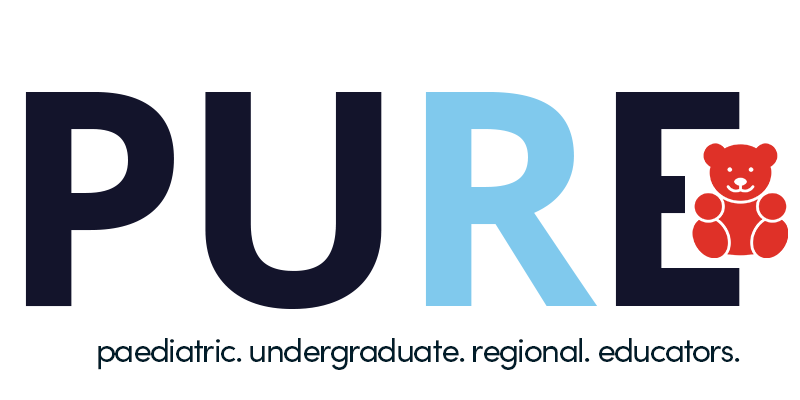Dr Philip Adedokun is an ST3 paediatric trainee currently working in Addenbrooke’s Hospital. His interest in teaching has led to his roles as a volunteer lecturer at Anglia Ruskin University, a supervisor for Cambridge University medical students, and also involvement in region-wide and national-wide mentoring teams. He is also a Research Assistant, and is interested in pursuing the subspecialty of paediatric neurology. In his free time, he likes to play football in a semi-professional league.
What is PURE?

PURE (the Paediatric Undergraduate Regional Educators Programme) is a pilot project, running in the East of England, which is actively recruiting paediatric trainees to deliver small group teaching sessions to undergraduate medical students.
It formed around two years ago as a collaboration between several universities in the East of England region, with the aim of developing a programme to benefit trainees by giving them teaching experience and training, as well as benefitting medical students by teaching them basic paediatric examinations.
How did you hear about PURE? What motivated you to join the programme?
I’ve always had a passion for teaching, and I used to teach colleagues and more junior students in medical school. I heard about the PURE programme through an email asking for interested trainees, so I signed up without much thought – and I’m glad that I did! I’ve really been able to improve my teaching skills since.
How does PURE support you to develop your teaching skills?
There is a lot of support from the universities and the deanery for developing your teaching skills – we had sessions teaching us about how to teach, as well as receiving mentoring. We have review sessions about what’s been done so far, and discuss the challenges which we’ve encountered, and how to improve from them.
Can you give an example of how your teaching has changed from just starting the programme, to now?
So, my first ever teaching session was chaotic. I felt clueless when the students came in, the patient I arranged for them to examine had just been discharged, the room I was hoping to use was occupied for an interview, my slides weren’t downloading from the internet…. Everything was just BAD.
But afterwards, I had a helpful mentoring session which helped me with understanding where the problems were, and I received really good advice about how to go about it next time. For example, getting the patients ready hours before, and having backup patients who the students could see, downloading my slides before, and giving the students my contact details and a set location for meeting so we don’t run in circles trying to find each other!
So after this, I began to improve. And I can recall one of my best teaching sessions on developmental milestones – this is quite abstract to teach, and it’s a bit of a struggle to get your head around it at the time. But it was a really fun and interactive session, and we developed codes / mnemonics to help remember the milestones – this was a really wonderful and rewarding session.
Taking part in PURE also helped me to prepare for the clinical exam for the MRPCH, which I was able to pass first-time! Taking part in PURE has also led me to complete a course on Integrated Foundation of Medical Education (IFME), and I hope to work towards another teaching degree – maybe a Masters or Postgraduate Certificate in Medical Education.
Having developed your teaching throughout this programme, what do you think makes a good teacher?
I think what makes a good teacher can be broken down into 4 points:
- Someone who understands themselves.
- Someone who learns to develop themselves (e.g., takes feedback from students and peers, and uses this to adjust how they teach)
- Someone who understands the theories of learning, and how to apply each learning method.
- Someone who can deliver constructive feedback to their students: this should be feedback that is factual and helpful for the students, so they know how to improve themselves.
How much commitment is PURE? How does it work?
The students come on rotational bases, so you’ll generally do around 3-4 teaching sessions (30 minutes – 1 hour) per 3-month rotation. The students are usually 4th or 5th years, and this is their first- or second time experiencing paediatrics. For each teaching session, you need to prepare the teaching materials and the logistics (e.g., communicating to the students about where to meet you, finding patients they can examine).
Would you recommend others to get involved?
Definitely. Anyone at any stage of training (ST1-8) can join PURE – if you have a commitment to teach, you can fill in the form online (link below). It really is a great opportunity to improve your teaching skills.
There was a lovely moment when I delivered a presentation about PURE on a paediatrics day. Someone joined PURE and told me later that it was my presentation that inspired him to join. We have since written an abstract together and he will be presenting this abstract about PURE in the RCPCH Conference in May 2023!
Useful links:
PURE programme webpage: https://paediatrics.medschl.cam.ac.uk/pure-programme/
PURE Twitter: @PureEducators
